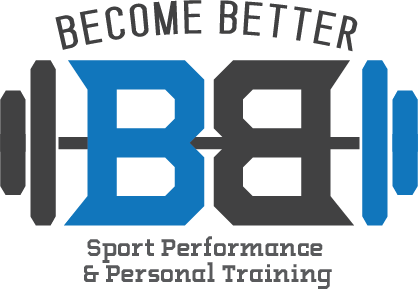Why is Sport Performance Important for Athletes?
To go off of our last blog article, we want to go a little more in depth and speak to the importance of sport performance for athletes. Every single athlete places stress on their bodies whether they are going through routine practice to playing multiple games per week, typically all year round. Year round sports is usually a topic of discussion with rate of injury and sport performance training is one way to help reduce that risk. Sport performance training is a great way to encourage and help many different skills like social development among their peers which can help them on and off the field of play. Sport performance can help to develop overall athletic ability to help with on field skills like speed, strength and conditioning. All athletes can benefit from training if they are looking to gain the edge they need over their opposition.
One of the hardest aspects among many young athletes is that they are playing all year round with no off-season. That does not mean young athletes should not play multiple sports. If anything, we prefer all athletes play multiple sports but when athletes have no off-season or scheduled rest period, they don’t allow for the body to recover when so much stress is constantly applied. That means these athletes are exposed to a greater chance of injury whether it be from over stress from playing or lack of rest/recovery. This places critical importance on strength coaches all over to use their education and knowledge to develop strength & conditioning programs to meet the needs of each athlete to help prevent injuries from happening during practice or play. This training would typically take place during the off season and pre season. We will go into more detail on when athletes should train in future blog articles.
11-year-old Colby trap bar deadlifting 100lbs
That leads us into our next topic on how sport performance will help the overall athletic ability of each athlete brought in. Each athlete may differ in needs, and we will go into more detail on that in a future blog article, but every athlete will benefit from a well designed strength & conditioning program. As strength coaches, we want to strengthen athletes from their base foundation and up. Among every sport, the base athletic position is very similar.. Sitting back into your hips, chest up with your shoulders back, displacing your weight evenly through your feet on the ground. Exercises done with the lower body to work on strength and power will help to build a stronger, better and faster moving base in athletic position. This can help a volleyball player explode into a dive to keep a play alive, a baseball player to have a faster first step/shuffle to field a ball or a football player to get a quick/explosive jump to tackling their opposition.
Another important topic to sport performance is to help kids gain many skills that can be used on and off the field. The weight room can be a dangerous area when people are not respectful of their surroundings and others around them. As coaches, we want to teach every individual gym etiquette. Gym etiquette teaches many skills such as, respect, cleanliness and social habits interacting with others. We want to teach how to put on and replace weights when they are finished, cleaning up after themselves and respecting themselves along with others around them. For example, when someone is deadlifting, you don’t want to walk in front of them or around them throwing off their focus. We want everyone placing clamps on the bar when necessary. If someone needs help putting weights away or cleaning, we encourage help when needed. Learning these skills can be used in the field of play or during the clean up process after games/matches are finished and also in home or at school in being respectful to what they have around them.
Sport Performance training will help to benefit athletes in a number of different ways. Athletes who train want to get as strong as they can to gain an advantage over their opposition but it is also critical that this training helps the athletes to prevent injury and prolong their performance on the field. Along with on the field strength, strength coaches hope that all athletes can gain life skills that can be used off the field to better each and every individual.


